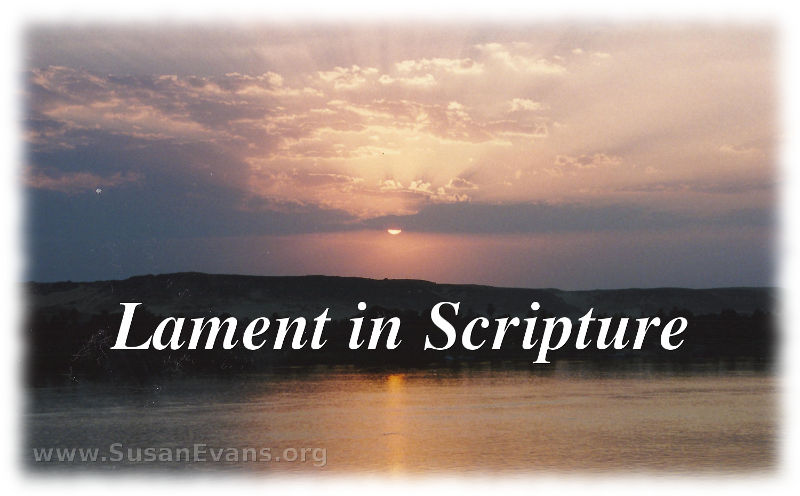“The most precious thing we have to offer is what hurts us the most.” – Michael Card
“The sacrifices of God are a broken spirit; a broken and contrite heart, O God, you will not despise.” – Psalm 51:17
“There is no true worship without wilderness.” – Michael Card
The book of Lamentations is a funeral dirge (poetic music) written about the fall of Jerusalem. It is included in the Bible as the inspired Word of God because sorrow directed towards God is accepted by God as worship.
In the book of Lamentations, Jeremiah is thrown into the bottom of a muddy well, left to starve, sitting among his own refuse. While in this reeking, dark hole in the ground, Jeremiah bursts out,
“The steadfast love of the LORD never ceases; his mercies never come to an end; they are new every morning; great is Your faithfulness.” (Lamentations 3:22-23)
In the middle of horrible muck with no hope, when his eyes were red and raw with crying, he remembered the faithfulness of God because of His divine presence. Maybe God’s tangible presence can only be found in such dire circumstances, which is why the people with the deepest faith are the ones who have suffered the most.
God accepted Job’s sorrow, and He stated that Job had not sinned in his despair directed towards the Lord. The questioning of God, the crying, the screaming—the rage even—was accepted by God. God declared Job to be right in what he said. (Job 42:7-8)
The majority of Psalms are laments which have sorrow in them directed towards God. This is our Psalter, God’s approved worship manual. God drinks it in as a sacrifice on our part, to pursue Him despite His crushing us through the trials He allows in our lives. In that deep sorrow, we press into God, and God shows up because we have nothing left but God. All of the laments in the Psalms (with only one exception) have a “but God” statement at the end. In other words, “Why are you downcast, oh my soul?” is followed by more and more sorrow poured out as an offering to God. At the end, in the last verse or two, “but God” is faithful and will come through for me in the end. This is the formula for this style of Psalm, to give us an example of how emptying ourselves towards God enables Him to show up and fill us in greater measure than we ever dreamed possible.
Every Christian who has gone through deep suffering knows exactly what I’m saying. This understanding brings comfort to the soul like a parched ground receiving life-giving water. Every time in my life that I have thrown myself towards God in the middle of sorrow, over and over again for days or weeks or even months, the end result is the filling of the Spirit, the showing up of God. “Taste and see that the Lord is good.” (Psalm 34:8) I have tasted the intense presence of God, and whenever I think back to those times, tears stream down my face because I yearn for God’s presence more than life itself. I would do anything for more of God.
A friend of Michael Card was pinned down under some building rubble, crippling him for life. In the middle of the excruciating pain during which he had no pain killer, while he was waiting for help to arrive and to dig him out—he felt the tangible presence of God. Time was inconsequential, he said. It could have been 5 minutes or 5 hours. It didn’t matter. The presence of God was exquisite. When the workers arrived, he felt the tangible presence of God leaving, and he cried out, “Please don’t leave!! You don’t have to heal me. Just… please don’t leave…”



